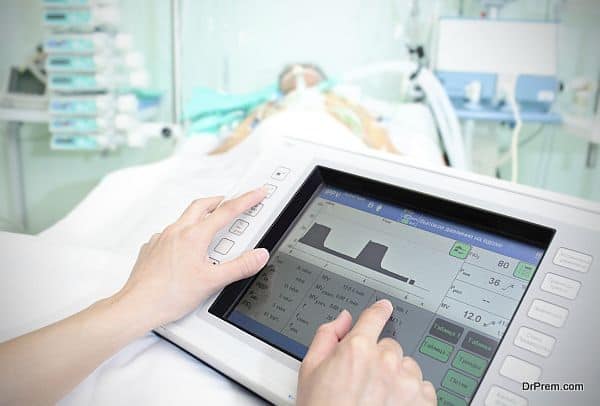The contribution of technology in healthcare cannot be understated. Courtesy the advancements in medical technology, the physicians are able to diagnose and treat their patients with optimum care and precision. Since the beginning of the professional practice of medicine, technology has saved precious lives and improved the overall quality of life.
In medical technology, innovation is the buzzword. Fusion of biotechnology, pharmaceuticals, information technology in addition to the development of medical devices and equipment has made the modern day healthcare so potent. Be it trifle innovation like adhesive bandages and ankle braces or the more complicated and sophisticated technologies including but not limited to MRI machines, artificial organs, and robotic prosthetic limbs, technology has changed the medical profession for good.
What is Health Information Technology (HIT)
Embracing health information technology (HIT), information technology applied to health care, has further strengthened the healthcare system in terms of reach and effectiveness. It offers a credible framework that facilitates the management of health information across computerized systems. It promotes mutually beneficial interaction between different vertices of healthcare including consumers, providers, government and quality entities, and insurers.
Impact on quality
Health information technology (HIT) is garnering acclaim as the most effective tool for raising the bar in health delivery system. It not only improves the quality of health care but also enhances its efficacy. HIT has proven credentials in minimizing, if not eliminating altogether, the medical errors that are a regular fixture in the conventional healthcare system. More importantly, it has substantially reduced the health care costs and made it affordable to the layperson. Moreover, HIT has made paperwork a thing of the past.
The advancements in HIT including electronic health records, mHealth applications, e-prescribing, and predictive analytics are playing a vital role in understanding diseases and potential treatments better and identifying striking similarities across patients to improve the quality of care. A study conducted by Deloitte, a reputable consultancy firm, reveals that a majority of prominent players in the healthcare industry are applying advanced analytics to elevate the existing level of disease management.
Bettering sales and marketing efforts
The established names in the healthcare segment are employing advanced analytics to receive better results from their sales and marketing efforts. Through advanced analytics, they are creating new analytics platforms. These platforms combine internal as well as external data to fashion new business models that aims to deliver better coordination between all aspects that constitutes the health care ecosystem. Considering the trend, one cannot rule out the possibility virtual health care delivery systems in the near future.
Changed the way stakeholders interact:
Adoption of new technologies is changing the manner in which physicians, patients, and other stakeholders interact. The study conducted by Deloitte further states that mobile technology and devices are instrumental in making healthcare accessible to many rural parts of the world, specifically in China and Africa. The study says that the number of mobile phone owners in China reached an estimated 1.22 billion, which is approximately the total population of India, by the close of 2014. In addition, Cisco predicts 850 million mobile phone users in Africa by 2017.
According to the study, Mexico has taken the initiative to implement electronic health records (EHRs) both in public and private institutions. Due to its limitations in technology sector, it is seeking cooperation from the United States and other countries to integrate innovative technologies into its domestic healthcare system.
China has dedicated its resources to explore HIT to materialize its much talked about health care system reforms. These technologies, if implemented, will offer challenges and opportunities in equal proportions to its existing business models. Now, it is up to the industry stakeholders to consider whether to prioritize assessing potential capability gaps or to leave it to any time in future.]]>




